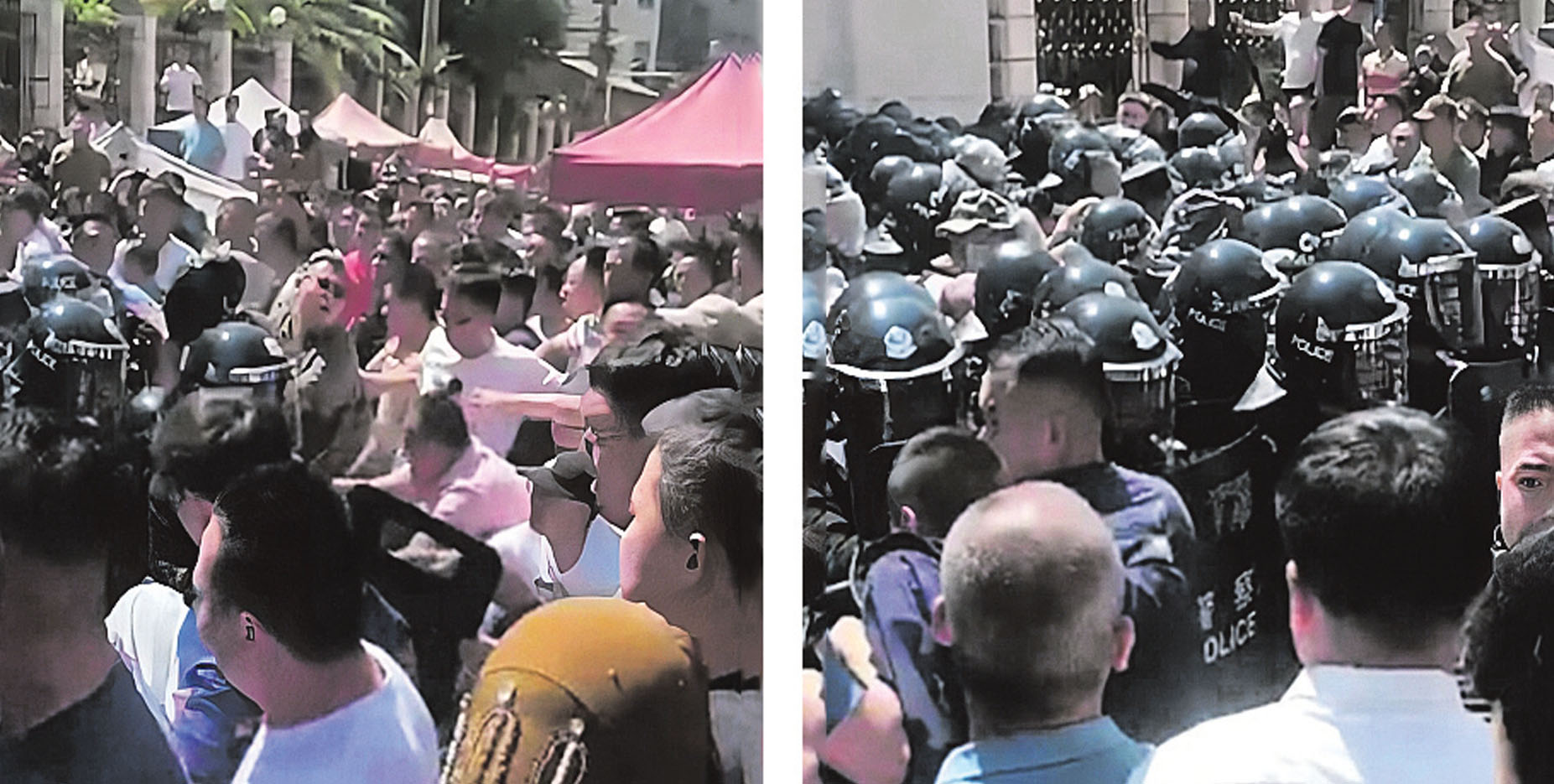
Meng Yihua additional reporting Nadine Osman
Thousands of protestors in a majority Hui Muslim town clashed with armed police in a rare show of defiance. On May 27, cranes arrived to demolish the minarets of the 14th-century Nàjiāyíng Mosque in Nagu, in China’s southern Yúnnán province, leading residents to gather to protect it.
Nagu is home to some 700,000 of the ten million ethnic Hui Muslims in China. Many of the protestors were arrested for disrupting social order as they sat guard inside the mosque.
Although media coverage of China’s crackdown on Muslims has predominantly shown the persecution of Uyghurs in the western Xinjiang province, other Muslim ethnic groups have been impacted by President Xi Jinping’s 2021 commitment to continue the “Sinicisation of Religion” to reflect Chinese culture and society.
The Nàjiāyíng Mosque has stood since 1370, but a 2020 court order ruled that the newly constructed domes and minarets were illegal and needed to be demolished.
This is part of China’s wider plan to eliminate Islamic influence in the country. Everything seemed normal as worshippers left the mosque after dawn prayer, but by 10 a.m., they saw bulldozers and trucks entering the mosque courtyard, protected by a special police force numbering in the hundreds.
As demolition preparations began, residents arriving for afternoon prayer were denied entry by lines of armed police, and clashes broke out with protestors throwing rocks. Social media videos showed authorities wielding truncheons and riot shields retaliating, but when police presence decreased many hours later, worshippers were finally able to enter the mosque.
Despite numerous arrests of locals, the protesters continued their guard of the mosque through the weekend, forcing police to retreat and return with even more agents.
According to one user on Twitter, the total military and police count is at least 5,000, with more plainclothes officers not included in this figure.
Yunnan has a history of protests in response to Beijing’s increasing signs of Sinicisation of religion. Hundreds of Hui Muslims in the Ningxia area battled the police in 2018 to prevent mosque demolitions.
The local government held off on the demolition but later replaced the mosque’s domes and minarets with traditional Chinese-style pagodas. Three mosques in Yúnnán were closed the same year for what China claimed was “illegal religious education.”
Police in Tonghai County, where Nagu is located, issued a statement on May 28 calling for protesters to surrender to police and warning them to leave the site by June 6.
“Those who voluntarily turn themselves in and truthfully confess the facts of violations and crimes may be given a lighter or mitigated punishment,” said the notice.
Calling the incident “a serious obstruction of the social order”, authorities also urged others to “actively report” protesters.
Numerous arrests were made, and hundreds of officers are said to have remained in Nagu after the weekend to control the crowds. There have been no further updates since then, with the internet cut off in the region, and no official news on the issue.
The Grand Mosque of Shadian is another mosque in the Hui-inhabited region of Yunnan that has been set to be sinicised, with plans to remove the dome and minarets and replace them with pagodas in late June. Teachers at a local Shadian school were forced to sign an internal letter of support distributed by the government or expect to see a reduction in their paychecks.
On January 15, the Chinese Human Rights Defenders and the Hope Umbrella International Foundation released a joint report titled “China’s Ethnic Hui Community at Risk of Erasure,” concluding that the “sinicization” campaign has “had the effect of expunging communities of their connections to Hui culture, religion, and each other so thoroughly that some leaders view the erasure of a meaningful Hui identity within another generation.”
Ma, the US-based Hui activist who founded the Hope Umbrella International Foundation, said “Hui Muslims in China are now living in a constant state of fear.”
Over two hundred mosques in Yunnan have already lost their domes and minarets, according to Ma, adding to the more than a thousand mosques in the country’s northwest.
Photo: Hui Muslim protesters clash with police in Nàjiāyíng. (Credit: Weibo and Twitter)
READ MORE